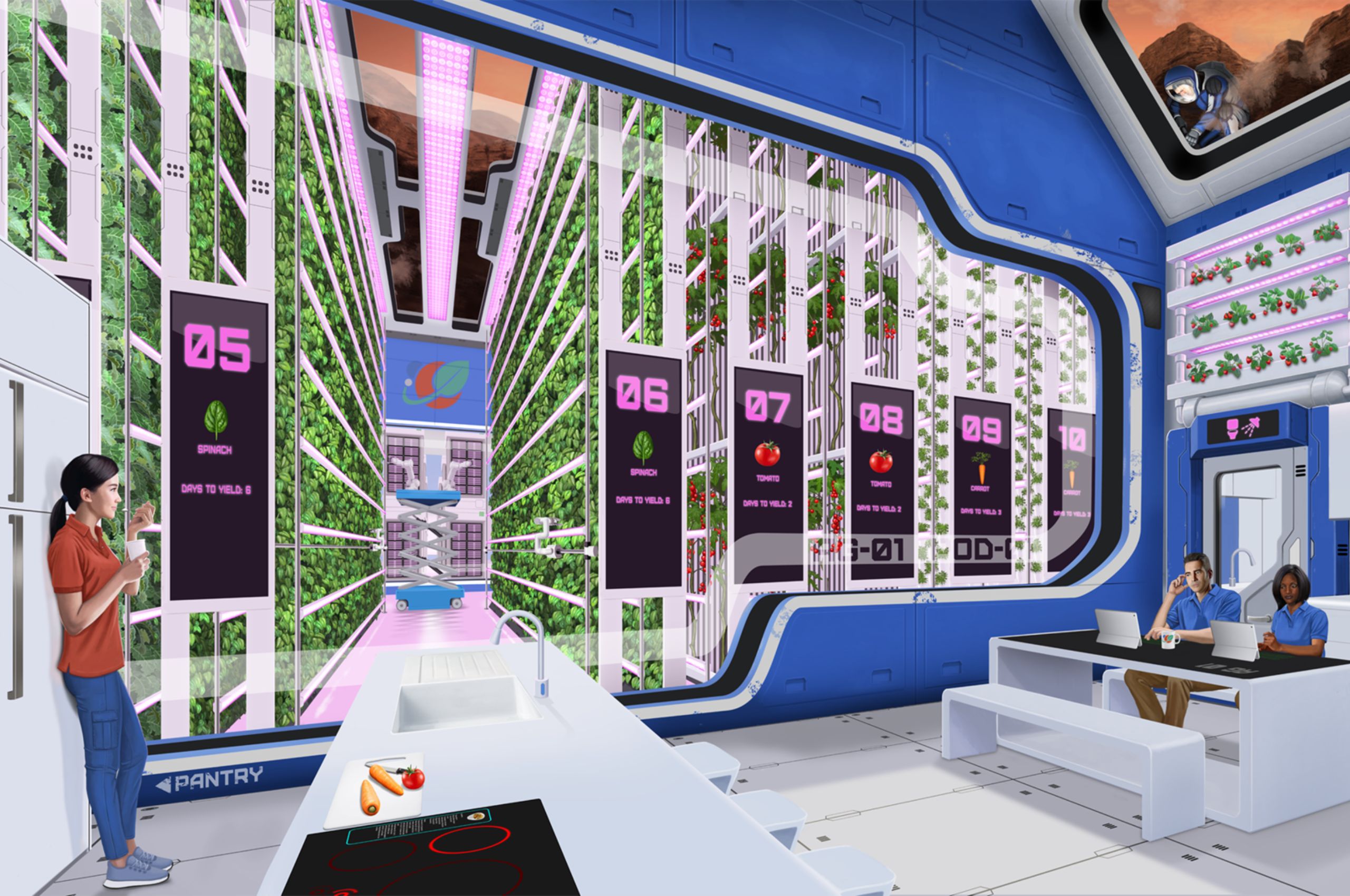Farms of the future

At a glance
- La Trobe University’s Prof Mathew Lewsey studies how to engineer plants to grow better in challenging environments
- Prof Lewsey’s lab is part of the Australian Research Council Centre of Excellence in Plants for Space, a global collaboration finding solutions for long-term space habitation and on Earth sustainability
- In a partnership with Gaia Project Australia (GPA), the lab combines their expertise in plant genetics with GPA’s vertical-farming-system technology
- The partnership will lead to more sustainable farming solutions for Earth and Space exploration.
Case study
Figuring out how to grow plants on Mars may sound like science fiction, but for people like Prof Mathew Lewsey, it’s a real challenge taking place right here on Earth.
“Growing plants on Mars is one of the biggest sustainability challenges you can imagine,” says Prof Lewsey. “There’s no (readily available) water, food, fertiliser; no materials to build anything.
“If we can solve those problems to grow enough food for a small settlement on Mars, we can apply those sustainability solutions on Earth.”
The Professor of Plant Genomics and Medicinal Agriculture at La Trobe University studies how plants sense, and respond to, their environment. By understanding which genes control which processes, his team engineers plants that grow better in indoor environments. He leads the charge in how plants perceive the world around them and interact with their environments by regulation of their genomes.
Food that grows up
Prof Lewsey’s lab – which investigates gene expression from individual gene to genome-scale using a combination of wet bench and computational approaches – has recently partnered with Gaia Project Australia (GPA), a vertical-farming-systems start-up. The collaboration combines the lab’s research in plant genetics with GPA’s technological and engineering expertise to improve vertical farming.
This partnership is key to running a successful vertical farm. “Working out the costs to build and power your setup is only half the equation of a profitable facility,” says Prof Lewsey. “We help farmers figure out which plants to grow, how to grow them, and how to improve their yield.
Our partnership with Gaia is a productive and interesting relationship. We’ve gained a deeper understanding of the vertical farming sector and solved real-world problems.
Macrogreens in microgravity
Prof Lewsey is also part of the Australian Research Council Centre of Excellence in Plants for Space. This massive global collaboration brings together academic institutions, space agencies, agriculture companies and other partners with a mission to ‘re-imagine plant design’ for space.
“It’s re-engineering plants from the ground up,” Prof Lewsey says.
Instead of tweaking a few genes to increase plant height or survive on less water, Plants for Space aims to design plants that can grow where no plants have grown before, and to optimise growth in controlled environments on Earth for high value crops well beyond lettuce and microgreens – the current mainstay of vertical farming.
GPA has joined the Plants for Space program since partnering with Prof Lewsey. GPA CEO, Nadun Hennayaka, says the collaboration “will enable Gaia to tap into cutting-edge horticulture research and expertise, which allows us to optimise crop cultivation in protected environments, reducing waste and increasing edible yields”.
While the long-term goal might be to feed astronauts, their partnership will lead to Earth-based solutions, too. “You can drop container farms into the middle of Australia to give remote communities better access to fresh fruit and vegetables, or use them for disaster recovery after fire or flood,” says Prof Lewsey.
“That’s the most significant impact we can have on Earth.”
